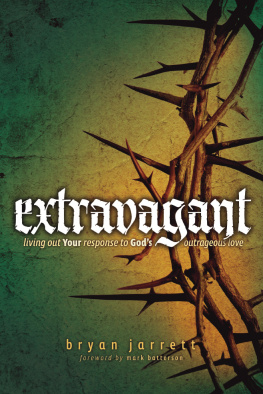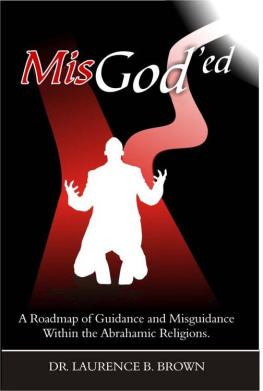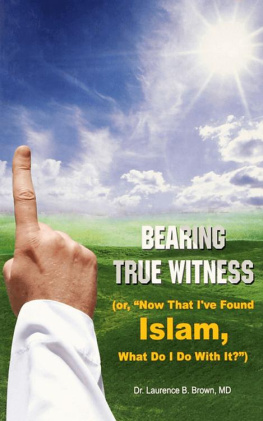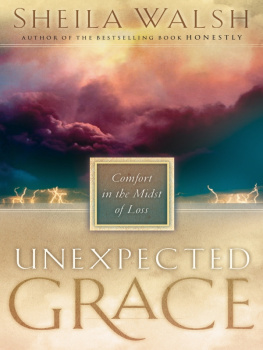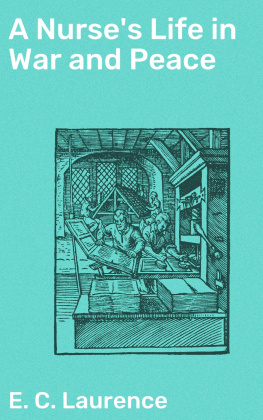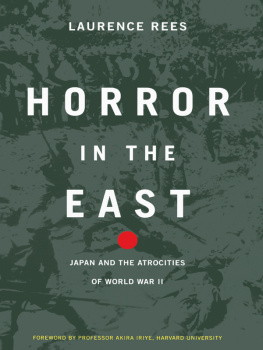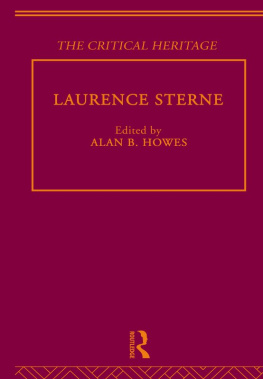Laurence Dan H. - Plays Extravagant
Here you can read online Laurence Dan H. - Plays Extravagant full text of the book (entire story) in english for free. Download pdf and epub, get meaning, cover and reviews about this ebook. City: London, year: 1991;2010, publisher: Penguin Books Ltd, genre: Art. Description of the work, (preface) as well as reviews are available. Best literature library LitArk.com created for fans of good reading and offers a wide selection of genres:
Romance novel
Science fiction
Adventure
Detective
Science
History
Home and family
Prose
Art
Politics
Computer
Non-fiction
Religion
Business
Children
Humor
Choose a favorite category and find really read worthwhile books. Enjoy immersion in the world of imagination, feel the emotions of the characters or learn something new for yourself, make an fascinating discovery.
- Book:Plays Extravagant
- Author:
- Publisher:Penguin Books Ltd
- Genre:
- Year:1991;2010
- City:London
- Rating:5 / 5
- Favourites:Add to favourites
- Your mark:
- 100
- 1
- 2
- 3
- 4
- 5
Plays Extravagant: summary, description and annotation
We offer to read an annotation, description, summary or preface (depends on what the author of the book "Plays Extravagant" wrote himself). If you haven't found the necessary information about the book — write in the comments, we will try to find it.
Plays Extravagant — read online for free the complete book (whole text) full work
Below is the text of the book, divided by pages. System saving the place of the last page read, allows you to conveniently read the book "Plays Extravagant" online for free, without having to search again every time where you left off. Put a bookmark, and you can go to the page where you finished reading at any time.
Font size:
Interval:
Bookmark:
THE BERNARD SHAW LIBRARY
PLAYS EXTRAVAGANT
Bernard Shaw was born in Dublin in 1856. Essentially shy, he yet created the persona of G.B.S., the showman, satirist, controversialist, critic, pundit, wit, intellectual buffoon and dramatist. Commentators brought a new adjective into English: Shavian, a term used to embody all his brilliant qualities.
After his arrival in London in 1876 he became an active Socialist and a brilliant platform speaker. He wrote on many social aspects of the day; on Common Sense about the War (1914), How to Settle the Irish Question (1917) and The Intelligent Womans Guide to Socialism and Capitalism (1928). He undertook his own education at the British Museum and consequently became keenly interested in cultural subjects. Thus his prolific output included music, art and theatre reviews, which were collected into several volumes published as Music in London 18901894 (3 vols., 1931); Pen Portraits and Reviews (1931); and Our Theatres in the Nineties (3 vols., 1931). Among his five novels, Cashel Byrons Profession and some shorter fiction including The Black Girl in Search of God and Some Lesser Tales are published in Penguins.
He conducted a strong attack on the London theatre and was closely associated with the intellectual revival of British theatre. His many plays fall into several categories: his Plays Pleasant; Plays Unpleasant; comedies; chronicle-plays; metabiological Pentateuch (Back to Methuselah, a series of plays) and political extravaganzas. G.B.S. died in 1950.
BERNARD SHAW
TOO TRUE TO BE GOOD
THE SIMPLETON
OF THE UNEXPECTED ISLES
THE MILLIONAIRESS
DEFINITIVE TEXT
UNDER THE EDITORIAL SUPERVISION OF
DAN H. LAURENCE

PENGUIN BOOKS
PENGUIN BOOKS
Published by the Penguin Group
Penguin Books Ltd, 80 Strand, London, WC2R 0RL, England
Penguin Books USA Inc., 375 Hudson Street, New York, New York 10014, USA
Penguin Books Australia Ltd, Ringwood, Victoria, Australia
Penguin Books Canada Ltd, 10 Alcorn Avenue, Toronto, Ontario, Canada M4V 3B2
Penguin Books (NZ) Ltd, 182190 Wairau Road, Auckland 10, New Zealand
Penguin Books Ltd, Registered Offices: 80 Strand, London, WC2R 0RL, England
This collection first published in Penguin Books 1981
Too True to be Good. Copyright 1933, 1934 by George Bernard Shaw. Copyright The Public Trustee as Executor of the Estate of George Bernard Shaw, 1960, 1961
The Simpleton of the Unexpected Isles. Copyright 1934, 1936 by George Bernard Shaw. Copyright The Public Trustee as Executor of the Estate of George Bernard Shaw, 1961
The Millionairess. Copyright 1936 by George Bernard Shaw. Copyright The Public Trustee as Executor of the Estate of George Bernard Shaw, 1961
All rights reserved
All business connected with Bernard Shaws plays is in the hands of The Society of Authors, 84 Drayton Gardens, London SW10 9SD (telephone: 071-373 6642), to which all inquiries and applications for licences should be addressed and performing fees paid. Dates and places of contemplated performances must be precisely specified in all applications. Applications for permission to give stock and amateur performances of Bernard Shaws plays in the United States of America and Canada should be made to Samuel French Inc., 42 West 25th Street, New York 10010. In all other cases, whether for stage, radio or television, application should be made to The Society of Authors, 84 Drayton Gardens, London SW10 9SD.
Except in the United States of America, this book is sold subject to the condition that it shall not, by way of trade or otherwise, be lent, re-sold, hired out, or otherwise circulated without the publishers prior consent in any form of binding or cover other than that in which it is published and without a similar condition including this condition being imposed on the subsequent purchaser
ISBN: 978-0-14-196372-3
A POLITICAL EXTRAVAGANZA
with
Preface
TOO TRUE TO BE GOOD
First presented by the Theatre Guild at the National Theatre, Boston, on 29 February 1932.
THE MONSTER | Julius Evans |
THE PATIENT ( MISS MOPPLY ) | Hope Williams |
THE ELDERLY LADY ( MRS MOPPLY ) | Minna Phillips |
THE DOCTOR | Alexander Clark, Jr |
THE NURSE ( SUSAN SWEETIE SIMPKINS , alias THE COUNTESS VALBRIONI ) | Beatrice Lillie |
THE BURGLAR ( POPSY , alias THE HONORABLE AUBREY BAGOT ) | Hugh Sinclair |
COLONEL TALLBOYS, V.C., D.S.O . | Ernest Cossart |
PRIVATE NAPOLEON ALEXANDER TROTSKY MEEK | Leo G. Carroll |
SERGEANT FIELDING | Frank Shannon |
THE ELDER | Claude Rains |
Period The Present
ACT I : One of the Best Bedrooms in one of the Best Surburban Villas in one of the Richest Cities in England
ACT II : A Sea Beach in a Mountainous Country
ACT III : A Narrow Gap leading down to the Beach
CONTENTS
MONEY AND HAPPINESS
S OMEHOW my play, Too True To Be Good, has in performance excited an animosity and an enthusiasm which will hardly be accounted for by the printed text. Some of the spectators felt that they had had a divine revelation, and overlooked the fact that the eloquent gentleman through whose extremely active mouth they had received it was the most hopeless sort of scoundrel: that is, one whose scoundrelism consists in the absence of conscience rather than in any positive vices, and is masked by good looks and agreeable manners. The less intellectual journalist critics sulked as they always do when their poverty but not their will consents to their witnessing a play of mine; but over and above the resultant querulousness to which I have long been accustomed I thought I detected an unusual intensity of resentment, as if I had hit them in some new and unbearably sore spot.
Where, then, was the offence that so exceedingly disgruntled these unhappy persons? I think it must have been the main gist and moral of the play, which is not, as usual, that our social system is unjust to the poor, but that it is cruel to the rich. Our revolutionary writers have dwelt on the horrors of poverty. Our conventional and romantic writers have ignored those horrors, dwelling pleasantly on the elegances of an existence free from pecuniary care. The poor have been pitied for miseries which do not, unfortunately, make them unbearably miserable. But who has pitied the idle rich or really believed that they have a worse time of it than those who have to live on ten shillings a day or less, and earn it? My play is a story of three reckless young people who come into possession of, for the moment, unlimited riches, and set out to have a thoroughly good time with all the modern machinery of pleasure to aid them. The result is that they get nothing for their money but a multitude of worries and a maddening dissatisfaction.
THE VAMPIRE AND THE CALF
I doubt whether this state of things is ever intentionally produced. We see a man apparently slaving to place his children in the position of my three adventurers; but on closer investigation we generally find that he does not care twopence for his children, and is wholly wrapped up in the fascinating game of making money. Like other games it is enjoyable only by people with an irresistible and virtually exclusive fancy for it, and enough arithmetical ability and flair for market values to play it well; but with these qualifications the poorest men can make the most astounding fortunes. They accumulate nothing but powers of extracting money every six months from their less acquisitive neighbors; and their children accumulate nothing but obligations to spend it. As between these two processes of bleeding and being bled, bleeding is the better fun. The vampire has a better time than the calf hung up by the heels with its throat cut. The moneygetter spends less on his food, clothes, and amusements than his clerks do, and is happy. His wife and sons and daughters, spending fabulous sums on themselves, are no happier than their housemaids, if so happy; for the routine of fashion is virtually as compulsory as the routine of a housemaid, its dressing is as much dictated as her uniform, its snubbings are as humiliating, and its monotony is more tedious because more senseless and useless, not to mention that it must be pleasanter to be tipped than to tip. And, as I surmise, the housemaids day off or evening off is really off: in those hard earned hours she ceases to be a housemaid and can be herself; but the lady of fashion never has a moment off: she has to be fashionable even in her little leisure, and dies without ever having had any self at all. Here and there you find rich ladies taking up occupations and interests which keep them so busy doing professional or public work that they might as well have five hundred a year as fifty thousand for all the good it does them as the poor say in their amazement when they see people who could afford to be fashionable and extravagant working hard and dressing rather plainly. But that requires a personal endowment of tastes and talents quite out of the common run.
Next pageFont size:
Interval:
Bookmark:
Similar books «Plays Extravagant»
Look at similar books to Plays Extravagant. We have selected literature similar in name and meaning in the hope of providing readers with more options to find new, interesting, not yet read works.
Discussion, reviews of the book Plays Extravagant and just readers' own opinions. Leave your comments, write what you think about the work, its meaning or the main characters. Specify what exactly you liked and what you didn't like, and why you think so.






